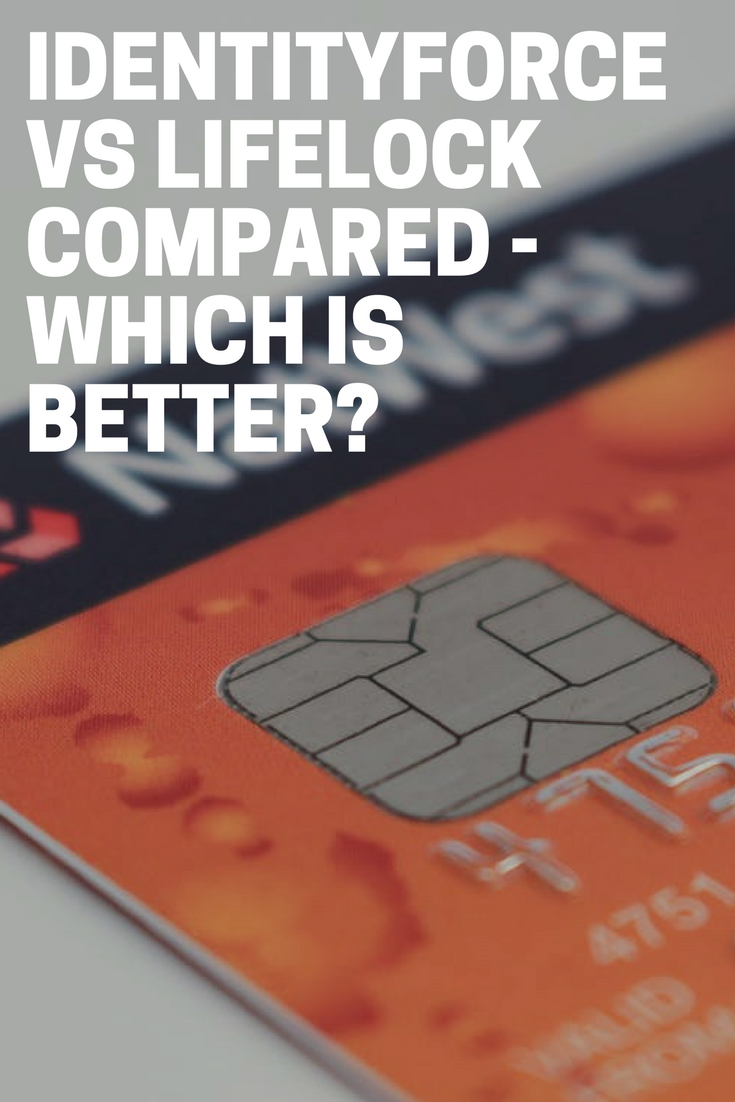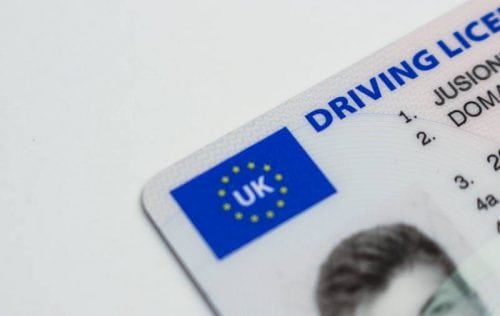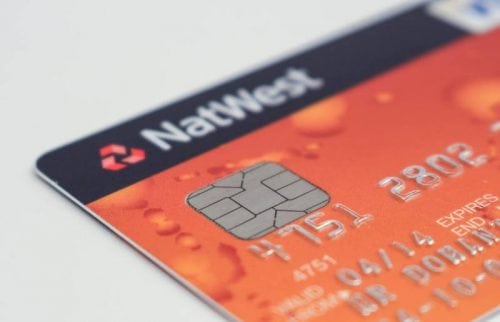
The Bureau of Justice Statistics (BJS) says that more than 7 percent of the population in the United States ages 16 and above were victims of identity theft at least once. A stolen purse, a misplaced passbook, a virus-filled computer, or even a lost ID can make you a victim of identity theft.

But what exactly is an identity theft? Identity theft is the unlawful use of someone else's identity or of any private identifying information to gain a financial advantage.
Scammers do this as a way to obtain benefits and other credits in the other person's name, and sometimes to the victim’s disadvantage. Becoming a victim of identity theft can be severely distressing, and there are many ways to protect yourself from it. IdentityForce and LifeLock are two of the best service providers in the United States for identity theft protection. But how do they work? And is it worth paying for an identity protection?
Cost
IdentityForce
The company offers two different plans, UltraSecure and UltraSecure + Credit. With IdentityForce’s promotion, you can get a 14-day free trial of their UltraSecure plan.
UltraSecure costs $17.95/month, but you get two months free when you sign up for a year of subscription which costs $179.50. UltraSecure + Credit costs $23.95 per month or $239.50 per year which includes two months of free subscription. Both plans offer the same services, except that the latter provides credit reports from the three national credit bureaus (Equifax, TransUnion, and Experian).

According to an analysis by Carnegie Mellon University’s CyLab, kids are 51 times more likely to be sufferers of identity theft than adults. The good news is that both plans offer an optional ChildWatch add-on of $2.75/month or $27.50/year for children's identity protection.
And in fact, IdentityForce is the only identity theft protection company to be given the Parent Tested Parent Approved (PTPA) Seal. The PTPA Seal is given to companies who have undergone and passed thorough evaluation from unbiased parent testers.
LifeLock
LifeLock offers three different plans, LifeLock Standard, LifeLock Advantage, and LifeLock Ultimate Plus which costs $9.99, $19.99 and $29.99 per month, respectively. So which of these is the best value?
LifeLock Standard gives you the necessary fraud alerts, lost wallet protection, fewer pre-approved credit card offers, monitoring your name on the dark web, a 24/7 live support, alerts on change of address and a $1 million service guarantee.

The LifeLock Advantage service includes everything that the Standard plan offers plus an annual online credit report from one bureau under and alerts on bank & credit card activity, crimes committed under your name, data breach, and false identity.
And finally, while LifeLock Ultimate Plus is 3x more expensive than the Standard plan, it will give you everything the other two plans offer. Plus monthly credit score tracking from all three bureaus, and alerts on investment account activity, bank account takeover, 401k investments, credit inquiry activity, file-sharing network searches, and sex offender registry reports.
If you’re interested in LifeLock’s services, their website offers a 30-day free trial. The catch is you will enter your credit card number because they will automatically re-subscribe you, so don’t forget to cancel out before the 30-day trial ends.
LifeLock’s services can go from $98.90 to $296.90 every year per person. You get an 8% discount if you pay for their service yearly. Because the Standard, Advantage, and Ultimate Plus plans have considerable gaps in their security, most people would prefer their Ultimate Plus plan.
Like IdentityForce, LifeLock also offers child identity theft protection but for a more hefty price of $5.99 per month. Teenagers are often victims of identity theft because they do not have a credit record and the fraud can go unseen for many years.
LifeLock isn’t advised for families because they do not have a family plan. An identity protection for a household of four will cost you $725.78 annually. IdentityForce, likewise, does not offer a family plan. But we can compare that to Identity Guard’s Family plan, which costs just $359.88 per year.
Features and Services
IdentityForce
What Identity Force can boast is they monitor a wide variety of information without ignoring the less important ones. Your driver’s licenses, Social Security number, medical benefits, payday loans, addresses, and sex offender records are all watched over and incorporated into a single plan. You can add other addresses and phone numbers to monitor address changes too.

Identity Force will oversee the black market for your data to see if it’s being used legally or illegally. Activity alerts let you know when an intruder is making purchases with your credit or bank cards, and you can set notifications whenever a payment, withdrawal, or transfer is made.
In case of identity theft, restoration specialists will guide you through your paperwork and other organizations to revoke and replace cards. You also get $1 million in coverage for any loss as a result of identity theft.
What makes Identity force unique is that each account comes with free Identity Theft Protection Software made by SentryBay, an antivirus software developer. This concentrates on keylogging prevention, a type of malware that records whatever you type and sends it to the hacker.

They also have “DeleteNow” to protect the privacy of their clients. The DeleteNow scans for new records with your name and other information about you every three months. If additional information about you exists, you will get a notification. This is especially useful for people who sign up on different websites.
Websites like Been Verified, Intelius, PeopleFinder, and Spokeo are all public sites that buy and sell this kind of information. And once a hacker gets your information from these public websites, they can easily steal your identity.
LifeLock
LifeLock looks for four principal actions for which to send a notification.
- The first is newly-opened accounts, covering everything from payday loans to internet subscriptions to credit cards.
- The second is suspicious actions on your existing accounts. Suspicious activities to credit cards or withdrawals from bank accounts will send a notification.
- The third is internet monitoring which browses the web for non-credit types of personal data that might be wandering around the internet which could be jeopardized by malware or a data breach.
- Finally, LifeLock watches for suspected misuse of public records, such as court documents, addresses, sex offender reports, and payday loan accounts. These can be used to engage in crimes under your name and can go for years without being discovered.
They also have a 5-point plan that details how they can secure your information. This includes monitoring your identity, scanning for threats, responding to any attempts to steal your identity, guaranteeing their services, and tracking your credit score. With this, they do an exceptional job of protecting your private information.

A unique feature of LifeLock is their Privacy Monitor. It is a new feature of LifeLock that scans a list of websites where your data is listed. LifeLock shows what data about you is posted on each site. This can include your age, relatives' information and your city of residence. The downside is you will still have to go to the specific website and opt out yourself or go through some other methods as LifeLock won’t do this for you.
Another downside is that LifeLock only has a web version. If you're a fan of smartphones, know that they don't have a mobile application. Its website looks the same on a smartphone as it does on a computer which can make it a bit difficult to see.
Verdict
Although LifeLock doesn't offer much with their $9.99 and $19.99 plans, LifeLock offers one of the most extensive identity monitoring solutions in the industry with their $29.99 plan. It’s a good fit for individuals, but families may find the rate too expensive. Setup is user-friendly, and the interface is easy to use. Their customer service is excellent and will respond quickly to your inquiries.
IdentityForce may be a bit costly, but you get what you pay for. It gives a wide range of protection with a user-friendly design. It does not leave customers wandering by hiding value-added perks on its more expensive premium plans. The DeleteNow feature and extensive monitoring abilities of IdentityForce are definite highpoints that clients can benefit from.
For the primary plans, IdentityForce is a little more expensive, but it protects more, while LifeLock is not that expensive and covers the essentials. Both companies have excellent reputations and are highly recommended by consumers. Depending on what type of protection you want, your choice may vary as to which provider you go with.



